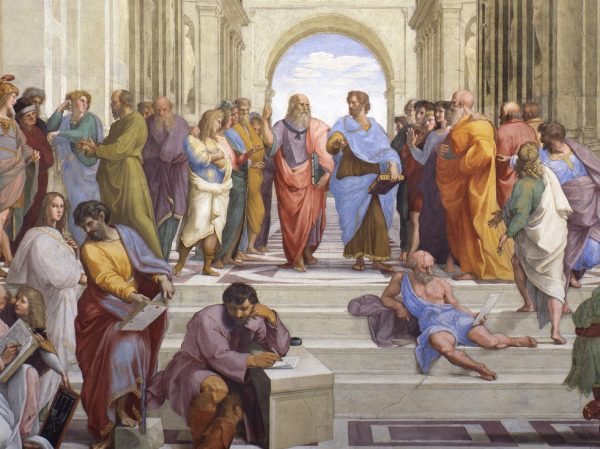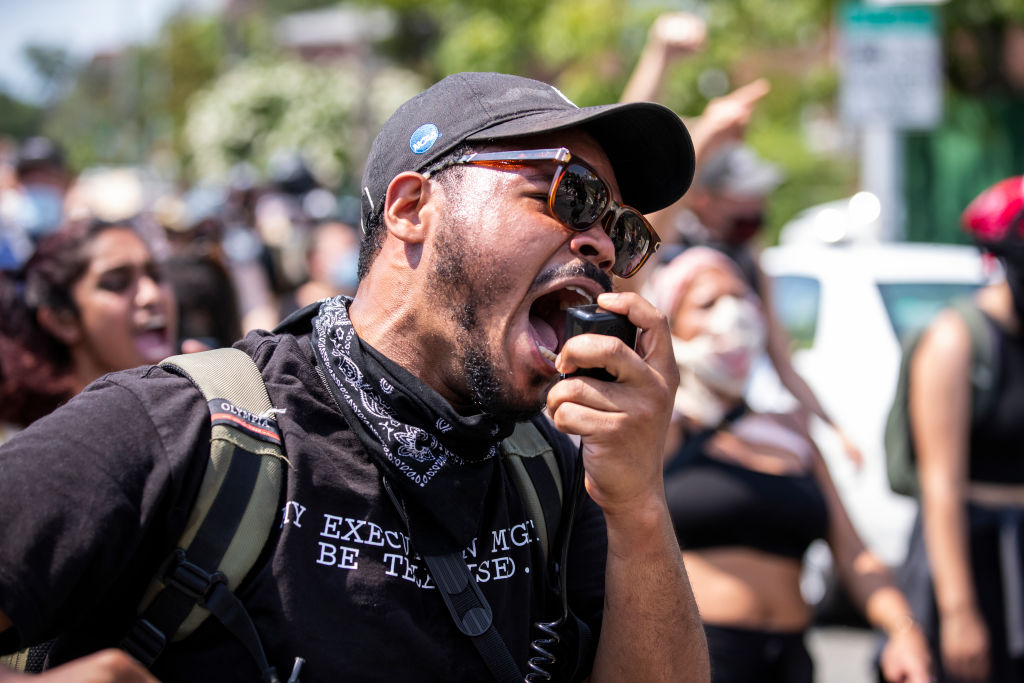When God recedes, nihilism takes His place.
Harvard’s Broken Signal

The warning is coming from inside the bubble.
There are a lot of subtleties to the story of Claudine Gay that haven’t made the headlines or the “hot takes” on social media. At its heart it is a story not just about one university president or about plagiarism—It’s a story about the broken signal being sent by Harvard and its “elite” brethren, and how some members of that brotherhood are fighting back against declining standards.
The plagiarism and antisemitism (which is largely downstream of the anti-white racism that has infected America’s leading universities) at the heart of Claudine Gay’s removal are important—but lurking underneath that surface story lies the story of how affirmative action mediocrities like Gay and her allies have broken the signal about what it meant to have a Harvard degree, to teach at Harvard, or even to be President of Harvard.
The reality is that Gay was promoted, far beyond her abilities and talents, solely because she was an ideologically reliable, or “woke,” black woman—while far more accomplished scholars and potential administrators of other races or ideological backgrounds were pushed aside.
And then there is the signal sent by the degree of Gay’s plagiarism itself—and Harvard’s slow reaction to it. Anyone who has done an academic book or papers working with large numbers of sources can have some sympathy for a few instances of direct quotes inadvertently not presented as such (especially if the author has cited the reference used), but other instances of Gay’s plagiarism seemed more damning. And most importantly, data problems and her refusal to share data suggest that at least some of her broader research may be fraudulent. At least publicly, Harvard stonewalled these findings and threatened those, such as the New York Post, who attempted to report on them.
People like Chris Rufo and Bill Ackman who acted against her are trying to restore the signal that leading institutions like Harvard used to give.
When my father attended Harvard in the late 1950s as a bright-eyed, naïve, upper-middle-class student from the Midwest, it was the days before predominantly merit admissions. My dad was a smart kid on his way to becoming a biophysics professor. But most of his class were not as academically focused.
Probably half of his class were guys with names Like Wentworth Cabot IV who had gone to Exeter (like Claudine Gay), Andover, or similar prep schools. They were young men—Harvard was still all male in those days—who generally had mediocre academics, good “breeding,” and substantial inherited money.
But most were also patriots who had a strong sense of noblesse oblige. Matt Damon’s character “Edward Wilson” in The Good Shepherd—an amalgam of various real-life gentleman spies—epitomized this aristocratic worldview. When asked by an Italian mafioso what the WASPs have that successful immigrant groups don’t, Damon’s character responds, “We have the United States of America. The rest of you are just visiting.” While Harvard’s signal was different in those days, it was still distinct.
Yet, if you were on an academic path at Harvard in those days, standards were high. My father told me about a British mathematics professor who was lecturing to his students about the mathematical concept of Laplace transforms. At one point he stopped and said to the students “You do know about Laplace transforms, correct?”
When a few sheepishly admitted they did not, he looked down disappointedly at them and remarked in his upper-class accent: “Really. Learning about the Laplace transform should be immediately post-fetal,” and then continued lecturing without explaining to the students what a Laplace transform was.
When I met my father’s Harvard classmates from those days, it was very easy to see which type they were. Sometimes you could tell just by their names, or how they dressed, or if not that, then where they went to high school. Many more you could tell by their manners or style of speaking.
But if you were an employer and those signals weren’t enough, a quick check of the transcript could tell you what sort of student you were dealing with. Harvard in those days didn’t hesitate to give Cs and Ds to those whose work didn’t measure up.
By the time I went to Yale in the early nineties, as an upper-middle-class public school student from the southeast (my father’s Harvard education provided him with a solid career, but being a biophysics professor isn’t a golden ticket to the upper class), a Harvard or Yale degree meant something different.
Most of the still numerous prep school students had lost their upper-class affectations. With rare exceptions, they were at least pretty sharp academically—maybe not truly elite, but quite capable (and some were outstanding). They had a lot of money, and some still had “good breeding.” The substantial majority of kids, at this point, however, were academic admits of one sort or another—and generally very impressive if perhaps overly ambitious.
If I met a Yale student from my era, and they weren’t a recruited athlete, a big donor’s kid, or an affirmative action admit, I knew I was dealing with a person who was generally going to be very bright. The signal was not that hard to find, if you knew what to look for.
Now, finding that signal has become extremely difficult. Rampant grade inflation and dubious courses have ruined the value of GPA. The SAT has been dumbed down and range restricted to the point that it is a much weaker signal of academic ability than it used to be.
And the curriculum itself has been corrupted. As the former Dean of Harvard College noted in a recent column in the Harvard Crimson, if you search the Harvard course catalog, you’ll find 25 offerings mentioning “decolonization”; more than 80 mentioning “oppression” and “liberation”; and more than 100 mentioning “social justice. “White supremacy” is mentioned as frequently as “enlightenment.“
Even more importantly, various forms of preferential admissions (affirmative action, building donors, and perhaps most important, admissions to students who are favored for their leftist political activism) have run so rampant that it is very difficult to tell what sort of students are at Harvard anymore. And the same is even more true for the faculty, which has become an ideological monoculture. A 2022 survey found that more than 80 percent of Harvard faculty self-identified as liberal, 37.5 percent as very liberal, while just 1.5 percent identified as conservative (and none as “very” conservative.)
The Ivies were very leftist and biased even when I was a student, but the rank political incompetence and ideological mania on display there regularly today would never have been tolerated. Both the President of Yale University and Dean of Yale College when I arrived were at least moderate conservatives—something that would be unthinkable today. There are still some absolutely phenomenal students at these schools—the best of the best—but separating them from the politically radical grifters, affirmative action admits, trustafarians, and other dubious characters who are good at mostly coloring inside the ideological lines has become well-nigh impossible. Today’s Harvard is only an illusion of meritocracy.
And Claudine Gay—an academically mediocre scholar who spent her career ruining those who were better and had more integrity than she did—was the epitome of Harvard’s broken quality signal. It is no coincidence that the hit against Gay was very much an inside job. It started from anonymous academic posters on the politically incorrect but high-end academic “Econ Jobs Rumors” message board, and journalist Chris Brunet, who had briefly worked at the University of Chicago. It was brought into the mainstream by Chris Rufo (Georgetown, Harvard) and Bill Ackman (Harvard, and long a major Harvard donor)
The story was then expanded by The Washington Free Beacon, edited by Eliana Johnson (Yale) using outstanding reporting from Aaron Sibarium (Yale). The fight over Claudine Gay—and the signal she sent—was an elite civil war, and the woke army just got crushed by the side that is fighting for American principles of fairness and integrity.
While this fight started with antisemitism and plagiarism, Rufo’s and Ackman’s quest has gained momentum and attempting to reform Harvard and its elite brethren. Until we can make the signal at these universities stand for academic quality rather than fashionable but empty leftism, this struggle must continue.
The American Mind presents a range of perspectives. Views are writers’ own and do not necessarily represent those of The Claremont Institute.
The American Mind is a publication of the Claremont Institute, a non-profit 501(c)(3) organization, dedicated to restoring the principles of the American Founding to their rightful, preeminent authority in our national life. Interested in supporting our work? Gifts to the Claremont Institute are tax-deductible.
American Education and the Cult of Victimhood
Higher education has always been a religious quest.



